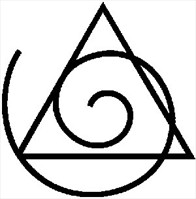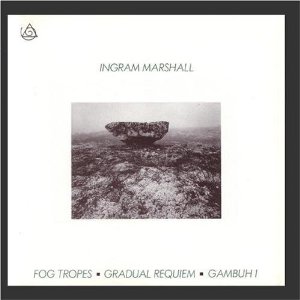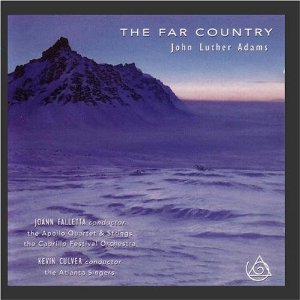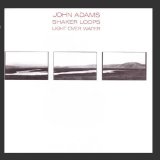People talk a lot about Indie labels and music these days, but back in the 1980s when Indie required a real commitment, New Albion Records sailed against the winds. Like its namesake, the ambiguous spot on the Pacific Coast where Sir Francis Drake landed in 1579, they found new musical lands, releasing avant-garde contemporary music by artists who became some of the leading composers of the day. Founded in 1983, this was in the pre-CD, pre-internet days when it took a fair amount of money and ambition to actually make music and put it on a medium accessible by the public, vinyl albums. Foster Reed, the founder of New Albion, had that ambition.
Who knew who Ingram Marshall was when his seminal minimalist ambient album, Fog Tropes, was released in 1983? It was used in the soundtrack to Shutter Island. Who would’ve dared put out Stephen Scott’s luminously ascendant New Music for Bowed Piano? Long before John Adams was an internationally renowned orchestral and operatic composer, he was releasing albums of pristine minimalism like Shaker Loops/Light Over Water on New Albion. Foster Reed and New Albion knew.
Reed was the Manfred Eicher of the avant-garde. If ECM’s Eicher had a gyroscope balanced between beauty and improvisation, Reed had one rotating at the intersection between beauty and invention. He discovered artists like Japanese composer Somei Satoh, who was merging traditional sounds with expansive, contemplative sensibilities. He released some of the earliest recordings by Bang on A Can member Evan Ziporyn and he put out the first album by computer composer Paul Lansky. Lanksy’s composition, “Mild und Leise” was sampled by Radiohead on “Idioteque” from Kid A.
But besides being a champion of new composers like David Hykes, Richard Teitelbaum and John Luther Adams, Foster revived interest in music from Lou Harrison, Morton Feldman, and John Cage . Who else was putting out CDs sung in Esperanto like Harrison’s La Koro Sutro? New Albion’s release of Pauline Oliveros’ Deep Listening established the template for musicians like Steve Roach and other drone zone pilots who explore the inner vibrations of sound and texture.
Minimalists, post-minimalists and maximalists were all embraced by New Albion. The label contributed to the resurgence of minimalist pioneer Terry Riley giving a home to some of the more challenging works by Riley along with a wonderful 25th Anniversary recording of In C. Daniel Lentz’s Missa Umbrarum took minimalism to church and Carl Stone excavated loops.
When Echoes was created in 1989, one of the initial cornerstones of the show was music put out by New Albion. And 23 years later, the roots of Ambient Chamber music heard so much on the show – from Harold Budd (who also recorded on New Albion) to Ólafur Arnalds to the August CD of the Month selection, Sebastian Plano’s The Arrhythmical Part of Hearts, – can be traced back to the music world of New Albion Records. I must admit, that although we’ve played recent music from the label like Slow Six’s Nor’easter, on Echoes, our musical orbit had moved away from the label’s oeuvre over the last decade or so even though New Albion albums by Lou Harrison, Ingram Marshall and Stephen Scott are works to which we still return.
New Albion came into the world when it seemed like new classical music would become part of the popular vernacular. The atonal and serial tropes of an earlier generation gave way to a new breed of composers who weren’t afraid of melody, mood, atmosphere and whose sensibilities were rooted in the contemporary global culture in all its manifestations rather than a rarefied academic world. In that it’s influence can be found in modern music, it was a cultural success. In that it’s audience was diminishing at the same time that music distribution paradigms changed, it couldn’t keep up.
In his farewell remarks on the New Albion website Foster Reed writes:
Our audience has always been artists musicians, composers, dancers and all those who like to stare out of the windows of perception.
The view from those windows is now a bit bleaker without New Albion Records.
Ten Essential New Albion Recordings
1 John Adams Shaker Loops – Light Over Water
2 Ingram Marshall Fog Tropes
3 Lou Harrison La Koro Sutro
4 Karlheinz Stockhausen Mantra
5 Stephen Scott New Music for Bowed Piano
6 Somei Satoh Sun-Moon
7 John Luther Adams The Far Country
8 Terry Riley In C (25th Anniversary Concert)
9 Pauline Oliveros Deep Listening
10 Morton Feldman Rothko Chapel – Why Patterns
~© 2012 John Diliberto ((( echoes )))





Shaker Loops was my first and remains my favorite New Albion recording. If they had done nothing more than introduce me to John Adams I’d still be forever grateful. Sadly, last week Classical Millennium closed its doors in Portland. One of the very few Classical music stores still left and an excellent one at that.
Welcome to the new improved dark ages.